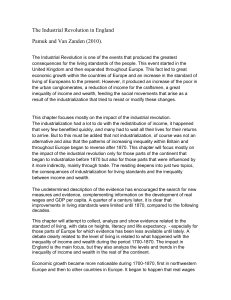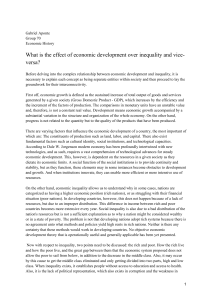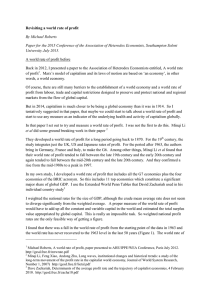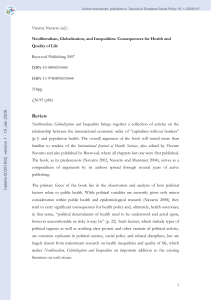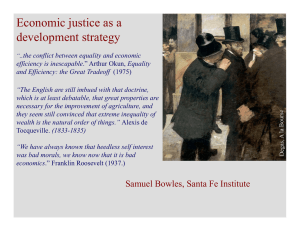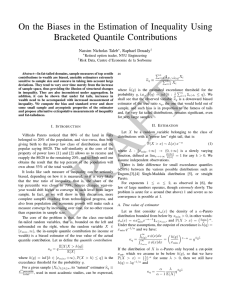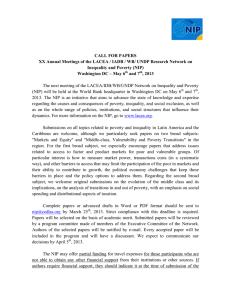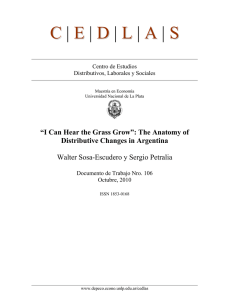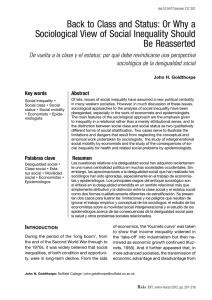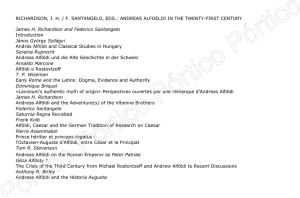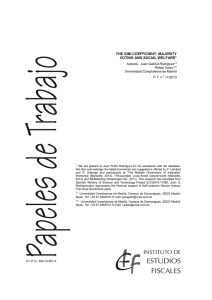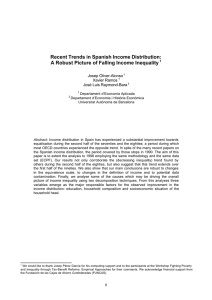Cover - Thomas Piketty
Anuncio
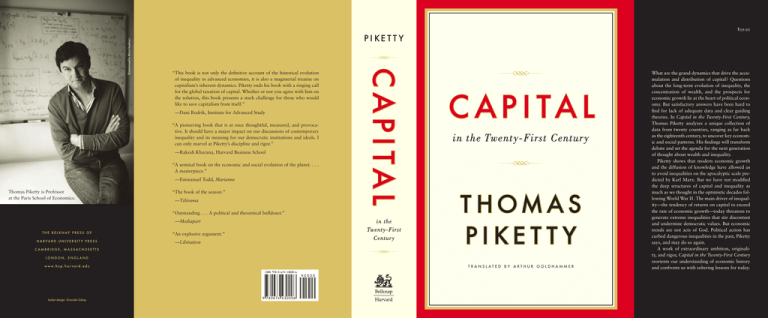
P I KE T T Y R “This book is not only the definitive account of the historical evolution of inequality in advanced economies, it is also a magisterial treatise on capitalism’s inherent dynamics. Piketty ends his book with a ringing call for the global taxation of capital. Whether or not you agree with him on the solution, this book presents a stark challenge for those who would like to save capitalism from itself.” —Dani Rodrik, Institute for Advanced Study “A pioneering book that is at once thoughtful, measured, and provocative. It should have a major impact on our discussions of contemporary inequality and its meaning for our democratic institutions and ideals. I can only marvel at Piketty’s discipline and rigor.” —Rakesh Khurana, Harvard Business School “A seminal book on the economic and social evolution of the planet. . . . A masterpiece.” —Emmanuel Todd, Marianne Thomas Piketty is Professor at the Paris School of Economics. “The book of the season.” —Télérama C AP I TAL Emmanuelle Marc hadour $39.95 “Outstanding . . . A political and theoretical bulldozer.” —Mediapart THE BELKNAP PRESS OF H A RVA R D U N I V E R S I T Y P R E S S C AMBRIDGE, MASSAC HUSETTS LONDON , ENGL AND w w w. h u p . h a r v a r d . e d u Jacket design: Graciela Galup “An explosive argument.” —Libération in the Twenty-First Century R R C AP I TAL in the Twenty-First Century R T HOMAS PI KE T T Y T R A N S L AT E D B Y A RT H U R G O L D H A M M E R What are the grand dynamics that drive the accumulation and distribution of capital? Questions about the long-term evolution of inequality, the concentration of wealth, and the prospects for economic growth lie at the heart of political economy. But satisfactory answers have been hard to find for lack of adequate data and clear guiding theories. In Capital in the Twenty-First Century, Thomas Piketty analyzes a unique collection of data from twenty countries, ranging as far back as the eighteenth century, to uncover key economic and social patterns. His findings will transform debate and set the agenda for the next generation of thought about wealth and inequality. Piketty shows that modern economic growth and the diffusion of knowledge have allowed us to avoid inequalities on the apocalyptic scale predicted by Karl Marx. But we have not modified the deep structures of capital and inequality as much as we thought in the optimistic decades following World War II. The main driver of inequality—the tendency of returns on capital to exceed the rate of economic growth—today threatens to generate extreme inequalities that stir discontent and undermine democratic values. But economic trends are not acts of God. Political action has curbed dangerous inequalities in the past, Piketty says, and may do so again. A work of extraordinary ambition, originality, and rigor, Capital in the Twenty-First Century reorients our understanding of economic history and confronts us with sobering lessons for today.
